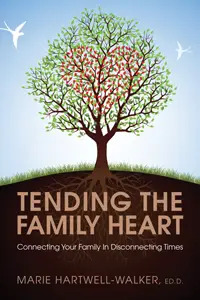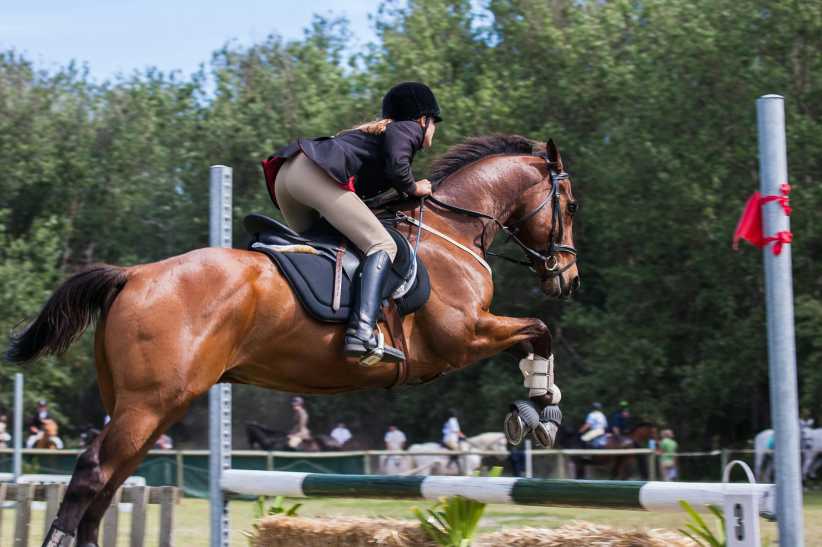In her new book “Tending the Family Heart,” Dr. Marie Hartwell-Walker discusses why it’s important for siblings to attend each other’s sports games, dance recitals, and other extracurricular activities.
It’s early Saturday morning. I’m tired. My husband is tired. The teenagers are comatose. There’s nothing we’d like to do better than to sleep in. “Someday,” I sigh, as I swing out of bed for an action-packed day that includes two soccer games, a Girl Scout fair for the Brownie in the house, and a potluck dinner with the babysitting co-op, not to mention the list of tasks (laundry, yard work, shopping) that gets somehow jammed in between events. There are times I can feel quite the martyr. There are times when I feel I deserve sainthood. (Have you ever noticed that the two are related? Every saint first had to suffer slings and arrows or some gruesom
e equivalent. I wonder if a numb backside from sitting on countless bleachers counts for anything in the saint-making department.) It seems that every weekend, our family is watching one or more of our kids chasing some dream or prize or ball or puck up and down some field or ice or pool or auditorium stage. No, we’re not yet another example of a family that over-schedules their children. If each of our four children is involved in only one sport or activity besides the usual school activities, the number of practices and events (and car pools) adds up quickly.
I complain, but I also know that the time will come only too soon when we won’t have all this fun to look forward to every weekend.
I wonder if the extra sleep will feel like a reasonable trade when the time comes. In the meantime, it’s part of being in a family to be part of all this action. Not just the grown-ups. The kids, too. When they’re not playing, it’s important that they take part in the watching, the cheering, the commiserating, and the endless reliving of what went right and what went wrong. It’s not news that what happens on the playing field is some microcosm of life.
It is equally true that character gets built on the bleachers. Here are my top five reasons the sibs should be in the stands:
1. Because love is as love does.
It’s too easy when the only support a kid has to give a sibling is an occasional acknowledgment of that sibling’s existence. And words alone don’t require much of us. Sitting through an entire second grade T-ball game, on the other hand, requires heroics of patience and understanding. And those heroics of generosity are part of what being in a family is all about. We want children to understand that love is active. While they are children, we can help them understand that love is helping each other out and going to each other’s events. When they are adults, it will be natural for them to be available to each other, to salute each other’s successes, and to be there when life is hard.
2. Because the value of support isn’t measured by the age of the giver.
When it is part of the family ethic that all members go to each other’s events, it becomes a given that it has value for everyone to be there. The family goes. It is important for older kids to know that they don’t have to be the best or to win to count in the eyes of their sibs. It is important for younger kids to know that their opinion or performance matters; that they are more than “cute.” Once they are adults, the few years that separate siblings cease to matter all that much.
3. Because being involved with each other’s lives gives family members something in common.
Modern life and modern technology can result in what psychologists call “parallel play.” Everyone is in the same house but is doing their own thing. Family members become detached and increasingly irrelevant to each other’s lives.
The antidote is to make each individual’s interests into a family event. Kids who grow up cheering each other’s successes and comforting each other in times of defeat are kids who are actively connected with each other. Sharing experiences and knowing something about each other’s interests provide endless topics for family conversations.
4. Because sportsmanship isn’t learned only on the playing field.
Children aren’t courteous, tactful, or good sports by nature — on or off the field. Sportsmanship starts in the family. Think about it: To be a good fan means to be gracious about both wins and losses, to accept bad calls, to cheer the team on when they are winning, to encourage them when they are losing. To be a good member of the audience is to be patient with amateur efforts, to applaud the courage of those on stage, to be concerned with more than one’s own pleasure. Being part of the family cheering section is where kids get very valuable coaching in dealing with triumph and defeat. Being the focus of the family cheering section (provided that it is support, not pressure) can give a kid the extra courage to go for the hard shot at the hockey game or that difficult high note in the trumpet solo.
5. Because manners matter.
Just as at the dinner table, manners grease the social wheels and underline respect for self and others. Sportsmanship is the manners of sports. These are skills that can’t be learned in the abstract. They can’t be learned at only one game or one dance recital or one play.
Like the lessons of the dinner table, the manners of public events are learned through modeling of adults and the repetition that makes it just part of what a family does.
The “Yes, Buts”: No Excuses!
Yes, but…little kids get bored.
Start young and do it often and this won’t be a problem. If what you’re saying is that you don’t find T-ball scintillating either, that’s a different matter. Find a way to engage with the game or performance. If all else fails, staff the snack bar and make sure you have someone lined up to relieve you when your kid is up. It isn’t important that you love everything your kid does. It is important the kids know that you love them enough that you and the rest of the gang will be there to witness what they are doing.
Yes, but…I hate football.
See above.
Yes, but…when the kids are occupied at games is when I get to have some time to myself.
Yes, we all need some respite, some quiet time for reflection, or to do something we really enjoy. But it’s also important to see time with the children as time that is for us, or we’ll end up resenting every minute that we spend with them.
Dr. Marie Hartwell-Walker is a licensed psychologist and a marriage and family therapist who has been in practice for more than 35 years. A parent of four, she contributes regularly to PsychCentral.com, and her new e-book “Tending the Family Heart” (from which the above is excerpted), is available at www.bn.com and www.amazon.com.
For more advice from Dr. Marie Hartwell-Walker’s book “Tending The Family Heart,” check out How To Encourage Siblings to Attend Each Other’s Events.





















